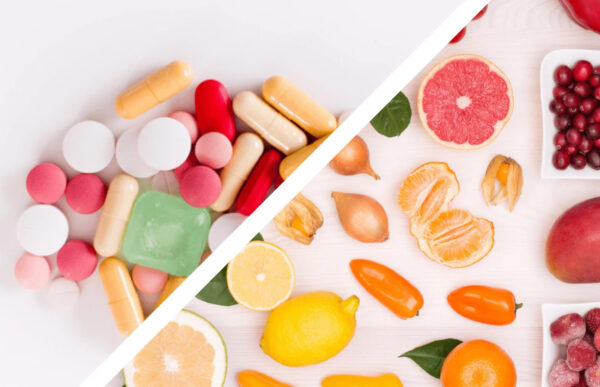 It is very important to understand the complex relationship between your dietary choices and the effectiveness of your medication to achieve optimal healthcare results. The connection between food and drugs, known as “food-drug interaction,” carries significant consequences for both the efficacy and potential adverse effects of your prescribed treatments.
It is very important to understand the complex relationship between your dietary choices and the effectiveness of your medication to achieve optimal healthcare results. The connection between food and drugs, known as “food-drug interaction,” carries significant consequences for both the efficacy and potential adverse effects of your prescribed treatments.
Essentially, a food-drug interaction takes place when certain edibles or beverages alter the behavior of a medicine in your body. This can lead to varying outcomes, potentially affecting the desired results of the medication.
“How a drug is absorbed by the body is one of the critical features that the FDA evaluates as part of its review of new drugs. There are many factors at play to properly formulate a drug so that it’s released into the body in the most effective and efficient way to achieve clinical effect. In addition to the makeup of the drug itself, the way it’s absorbed in the body may change based on our own physiology, whether or not we take a drug with food, and even what types of food we eat throughout the day. All of this can impact the drug’s efficacy and safety,” said FDA Commissioner Scott Gottlieb, M.D. “
“These studies provide crucial information on the precise formulation and dose to optimize efficacy and safety and are typically done in healthy adults before the drug is tested on patients. The overall goal of these guidance’s is to help uncover problems earlier in the development process and lead to better drugs and more information for patients on the effect of their medicines.”
Here are key points to consider:
- Medicine Effectiveness: A food-drug interaction has the potential to hinder a medicine’s ability to work as intended. Consuming specific foods or beverages alongside certain medications may compromise their absorption, distribution, metabolism, or elimination within your system.
- Side Effect Modulation: Food can influence the severity of side effects associated with medications. In some instances, the interaction may exacerbate side effects, making them more pronounced. Conversely, certain foods might mitigate the impact of side effects or even enhance the therapeutic effects of the medication.
- New Side Effects: The interplay between food and drugs can lead to the emergence of new side effects that may not have been anticipated. This highlights the complexity of medication management and the importance of being vigilant about potential interactions.
- Timing Considerations: For some medications, the timing of ingestion concerning meals is crucial. In certain cases, taking medication with or without food can significantly influence its absorption and subsequent effectiveness. Following specific instructions regarding food intake is imperative to mitigate potential interactions.
- Personalized Considerations: The impact of food-drug interactions can vary from person to person. Factors such as individual metabolism, underlying health conditions, and the specific medication in question contribute to the uniqueness of these interactions. Therefore, personalized guidance from healthcare professionals is essential.
EXAMPLES OF INTERACTIONS:
Taking a brand-new medicine often involves more than just adhering to a prescribed routine. The tricky dance among positive ingredients and tablets can significantly affect how your body methods medicine, influencing its efficacy and capability side outcomes. In this list, we’re going to delve into the complicated realm of food-drug interactions, dropping mild on a few medicines that interact with food and presenting insights on the way to navigate these interactions for a safer and greater effective healthcare journey.
- Acetaminophen + Alcohol: The seemingly harmless combination of acetaminophen and alcohol can pose serious risks, especially for regular drinkers. The heightened risk of liver toxicity emphasizes the importance of understanding the potential consequences of this interaction. Individuals should exercise caution, particularly if they consume more than the recommended amount of alcohol.
- Some Antibiotics + Dairy: Certain antibiotics, such as fluoroquinolones and specific tetracyclines, clash with dairy products, hindering drug absorption. To optimize antibiotic effectiveness, it’s crucial to avoid consuming milk, yogurt, or cheese within two hours before and six hours after taking these medications.
- Calcium Channel Blockers and Statins + Grapefruit: Grapefruit’s interference with drug-metabolizing enzymes can lead to dangerous drug accumulation, especially with calcium channel blockers and statins. Patients taking medications for high blood pressure or cholesterol should be cautious and consider alternatives like orange juice.
With most drugs that are affected by grapefruit juice, “the juice lets more of the drug enter the blood,” says Shiew Mei Huang, Ph.D., of the FDA. “When there is too much drug in the blood, you may have more side effects.”
- MAOIs + Aged Cheeses: Monoamine oxidase inhibitors (MAOIs) used for depression require vigilance regarding high-tyramine foods like aged cheeses. Failure to do so may result in a hypertensive crisis, emphasizing the need for careful dietary considerations when prescribed MAOIs.
- Ziprasidone + Small Meals: The antipsychotic medication ziprasidone functions optimally when taken with a substantial meal. Patients are advised to consume at least 500 calories to ensure proper absorption and enhance the drug’s efficiency.
- Hypothyroid Drugs + (Any) Food: Levothyroxine, commonly prescribed for hypothyroidism, demands a fasting window before breakfast to maintain optimal drug absorption. Patients should refrain from consuming any food, including coffee, during this critical period.
- Spironolactone + Licorice: Spironolactone, a diuretic, loses its efficacy when combined with licorice. This interaction highlights the need to avoid licorice in any form, be it tea, candy, or supplements, to ensure the medication’s effectiveness.
- SSRIs + Alcohol: Combining selective serotonin reuptake inhibitors (SSRIs) with alcohol heightens the risk of gastrointestinal bleeding. Patients should heed the black box warning and exercise caution when using alcohol alongside these antidepressants.
- Warfarin + Kale: Warfarin, a blood thinner, interacts with vitamin K-rich foods like kale and broccoli. Consistent dietary habits are crucial to maintaining the medication’s effectiveness, preventing complications like blood clots or bleeding.
- Metronidazole + Alcohol: Metronidazole, an antibiotic, and alcohol create a severe reaction, resulting in intense vomiting. Patients are strongly advised to abstain from alcohol for 48 hours after stopping the medication to avoid adverse effects.
- Green, Leafy Vegetables + Aspirin: The interaction between green, leafy vegetables and aspirin, a blood-thinning medication, revolves around the high vitamin K content in these greens. Vitamin K plays a crucial role in blood clotting, and aspirin’s blood-thinning mechanism may be impacted by consistent and significant vitamin K intake.
Being mindful of what you eat and drink together with your medications is a fundamental aspect of responsible healthcare management. By understanding and actively addressing potential food-drug interactions, you contribute to the effectiveness and safety of your prescribed treatment plan.
Understanding food-drug interactions is vital for ensuring the effectiveness and safety of medications. Patients and caregivers should actively engage with healthcare providers and pharmacists to receive comprehensive guidance on potential interactions and necessary dietary adjustments. By staying informed and proactive, individuals can navigate the intricate landscape of food-drug interactions, fostering a safer and more successful healthcare journey.
While MyCabinet may not currently offer a specific feature to detect interactions with various foods, it stands as a valuable tool in medication management by providing a system to identify potential interactions among prescription medications. The platform’s focus on prescription drugs ensures that users can receive alerts related to potential conflicts between different prescribed medications, allowing for a safer and more informed medication management experience. While users should remain alert about potential food-drug interactions and consult healthcare professionals for personalized advice, MyCabinet’s commitment to enhancing medication safety remains a cornerstone in empowering individuals to take control of their health and well-being.
As technology advances, future updates to the platform may expand its capabilities, addressing a broader spectrum of interactions to further support users in making informed healthcare decisions.
SOURCES:
- https://www.everydayhealth.com/diet-nutrition/common-food-and-medication-interactions-to-avoid/
- https://www.fda.gov/consumers/consumer-updates/grapefruit-juice-and-some-drugs-dont-mix
- https://www.fda.gov/news-events/fda-brief/fda-brief-improve-drug-safety-and-effectiveness-fda-issues-new-guidelines-evaluating-absorption
- https://www.bvhealthsystem.org/expert-health-articles/common-food-drug-interactions




